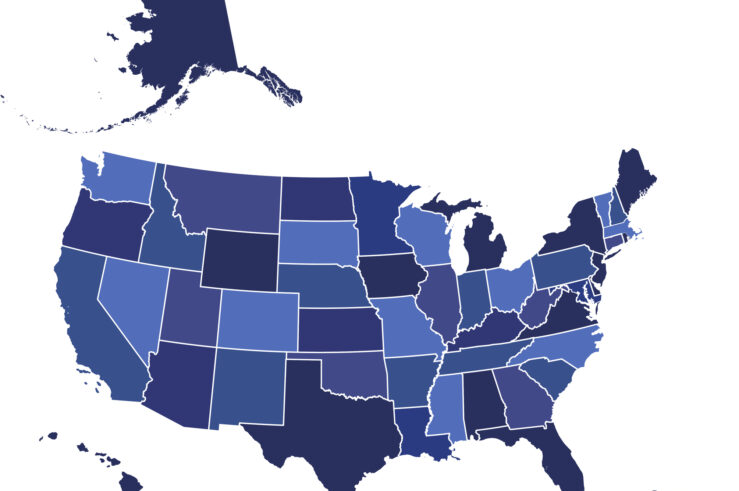Showing results for: “digital markets act”
The FTC’s Privacy Report Fails to Justify Asymmetric Regulation of ISPs
Others already have noted that the Federal Trade Commission’s (FTC) recently released 6(b) report on the privacy practices of Internet service providers (ISPs) fails to comprehend that widespread adoption of privacy-enabling technology—in particular, Hypertext Transfer Protocol Secure (HTTPS) and DNS over HTTPS (DoH), but also the use of virtual private networks (VPNs)—largely precludes ISPs from ... The FTC’s Privacy Report Fails to Justify Asymmetric Regulation of ISPs
Political Philosophy, Competition, and Competition Law: The Road to and from Neoliberalism, Part 1
The interplay among political philosophy, competition, and competition law remains, with some notable exceptions, understudied in the literature. Indeed, while examinations of the intersection between economics and competition law have taught us much, relatively little has been said about the value frameworks within which different visions of competition and competition law operate. As Ronald Coase ... Political Philosophy, Competition, and Competition Law: The Road to and from Neoliberalism, Part 1
Case closed: Google wins (for now)
The European Commission and its supporters were quick to claim victory following last week’s long-awaited General Court of the European Union ruling in the Google Shopping case. It’s hard to fault them. The judgment is ostensibly an unmitigated win for the Commission, with the court upholding nearly every aspect of its decision. However, the broader ... Case closed: Google wins (for now)
The BIF Offers a Good First Step for Broadband, but the Devil Will Be in the Details
Capping months of inter-chamber legislative wrangling, President Joe Biden on Nov. 15 signed the $1 trillion Infrastructure Investment and Jobs Act (also known as the bipartisan infrastructure framework, or BIF), which sets aside $65 billion of federal funding for broadband projects. While there is much to praise about the package’s focus on broadband deployment and ... The BIF Offers a Good First Step for Broadband, but the Devil Will Be in the Details
What is the Appropriate Role for State Antitrust Enforcement?
In the U.S. system of dual federal and state sovereigns, a normative analysis reveals principles that could guide state antitrust-enforcement priorities, to promote complementarity in federal and state antitrust policy, and thereby advance consumer welfare. Discussion Positive analysis reveals that state antitrust enforcement is a firmly entrenched feature of American antitrust policy. The U.S. Supreme ... What is the Appropriate Role for State Antitrust Enforcement?
Judge Ginsburg: On the Proposed Digital Markets Unit and the UK’s Competition and Markets Authority
Thank you, Victoria, for the invitation to respond to Mr. Coscelli and his proposal for a legislatively founded Digital Markets Unit. Mr. Coscelli is one of the most talented, successful, and creative heads a competition agency has ever had. In the case of the DMU [ed., Digital Markets Unit], however, I think he has let ... Judge Ginsburg: On the Proposed Digital Markets Unit and the UK’s Competition and Markets Authority
Consumer Welfare-Based Antitrust Enforcement is the Superior Means to Deal with Large Digital-Platform Competition Issues
There has been a rapid proliferation of proposals in recent years to closely regulate competition among large digital platforms. The European Union’s Digital Markets Act (DMA, which will become effective in 2023) imposes a variety of data-use, interoperability, and non-self-preferencing obligations on digital “gatekeeper” firms. A host of other regulatory schemes are being considered in ... Consumer Welfare-Based Antitrust Enforcement is the Superior Means to Deal with Large Digital-Platform Competition Issues
The Contestable Platform Paradox
Why do digital industries routinely lead to one company having a very large share of the market (at least if one defines markets narrowly)? To anyone familiar with competition policy discussions, the answer might seem obvious: network effects, scale-related economies, and other barriers to entry lead to winner-take-all dynamics in platform industries. Accordingly, it is ... The Contestable Platform Paradox
FTC Moves Closer Toward Ex Ante Merger Regulation
The Federal Trade Commission (FTC) has taken another step away from case-specific evaluation of proposed mergers and toward an ex ante regulatory approach in its Oct. 25 “Statement of the Commission on Use of Prior Approval Provisions in Merger Orders.” Though not unexpected, this unfortunate initiative once again manifests the current FTC leadership’s disdain for ... FTC Moves Closer Toward Ex Ante Merger Regulation
‘New Madison Approach’ Should Be Retained to Promote American Innovation
The leading contribution to sound competition policy made by former Assistant U.S. Attorney General Makan Delrahim was his enunciation of the “New Madison Approach” to patent-antitrust enforcement—and, in particular, to the antitrust treatment of standard essential patent licensing (see, for example, here, here, and here). In short (citations omitted): The New Madison Approach (“NMA”) advanced ... ‘New Madison Approach’ Should Be Retained to Promote American Innovation
5 Thoughts on the Senate’s Proposed Platform Self-Preferencing Ban
A bipartisan group of senators unveiled legislation today that would dramatically curtail the ability of online platforms to “self-preference” their own services—for example, when Apple pre-installs its own Weather or Podcasts apps on the iPhone, giving it an advantage that independent apps don’t have. The measure accompanies a House bill that included similar provisions, with ... 5 Thoughts on the Senate’s Proposed Platform Self-Preferencing Ban
Broad-Based FTC Data-Privacy and Security Rulemaking Would Flunk a Cost-Benefit Test
A debate has broken out among the four sitting members of the Federal Trade Commission (FTC) in connection with the recently submitted FTC Report to Congress on Privacy and Security. Chair Lina Khan argues that the commission “must explore using its rulemaking tools to codify baseline protections,” while Commissioner Rebecca Kelly Slaughter has urged the ... Broad-Based FTC Data-Privacy and Security Rulemaking Would Flunk a Cost-Benefit Test










